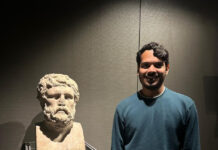 Dear Jeyamohan,
Dear Jeyamohan,
I am an ardent reader of philosophy and literature. I used to read the philosophical discourses of Osho and J. Krishnamurthy. I love Gurdjieff. However, it was through you that I became acquainted with the philosophical works of Nataraja Guru and Hiriyanna. I find these philosophy books difficult to read. The writing style and vocabulary are extremely complex. I find it difficult to comprehend the intention behind this style of writing. Why can’t they write their books in a simple and lucid style?
J. Santhakumar
Dear Santhakumar,
What you’re referring to is the root cause of significant confusion among our younger readers. With our clarifying this, one can’t enter into philosophy.
Sermons of religious and spiritual personalities are not philosophical discourses. The language and expression of a sermon are entirely different from a philosophical discourse. A sermon is a personal discourse that originates directly from the personality of a spiritual or religious person; as such, it can be both emotional and ornamental. A sermon can speak directly to your mind and soul. It may contain philosophical visions, but it is not strictly a philosophical text.
There can be nothing personal in a philosophical discourse. Therefore, philosophical discourses are essentially impersonal and implicit. A sermon involves two distinct personalities: the narrator and the listener. The sermon is a mode of communication between them. In a philosophical discourse, there are no personalities involved on either side. A philosophical discourse should be able to stand alone with its own linguistic expression. Therefore, they maintain a high level of objectivity and meticulously arrange their language to convey perfect meaning. Philosophy always tries to express an idea precisely and without any chance to misinterpret. So it uses complete, compound sentences.
Moreover, philosophy is not an expression of a single person emerging in a particular context; it is a continuation of discourse already going on in a given culture. Therefore, it naturally draws upon a multitude of prior scholars, books, and concepts. Referring to a concept is possible only through technical terms; otherwise, one has to explain every concept again and again. Therefore, a philosophical discourse typically employs objective and precise language with lot of technical terms, which may appear challenging and complex to an ordinary reader. We have to give our attention to that particular language and understand the technical terms properly.
Jeyamohan











